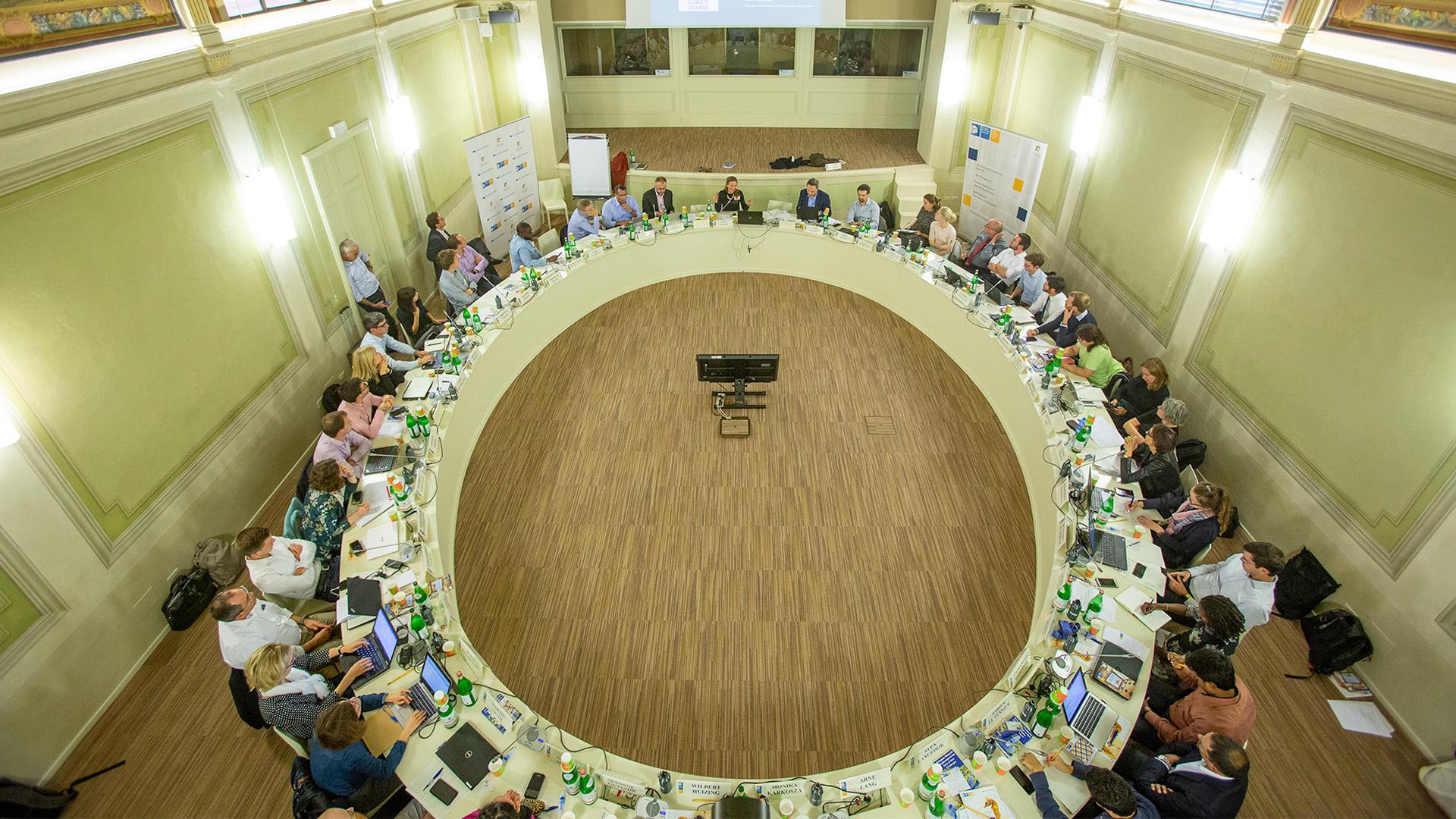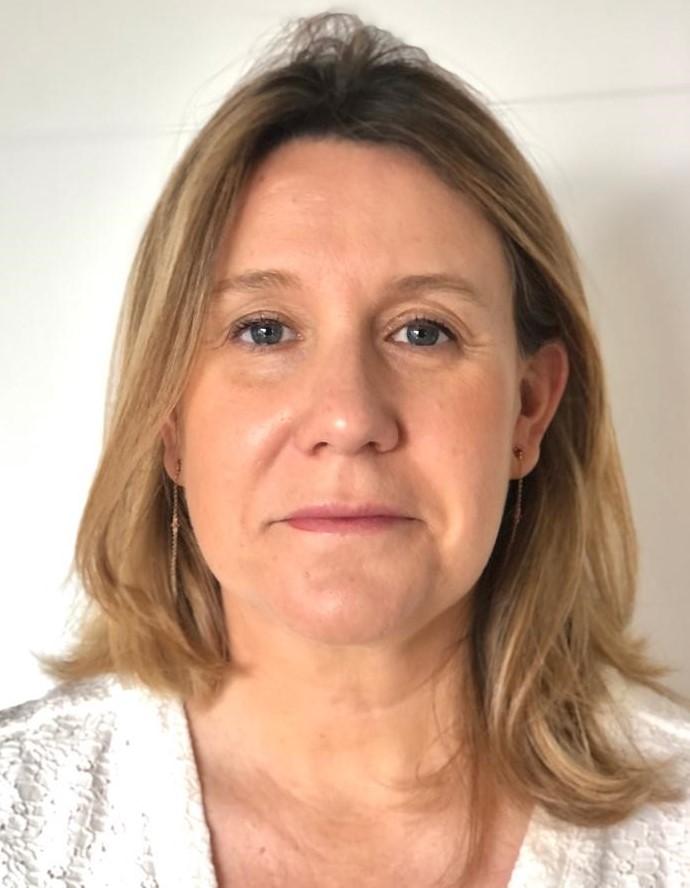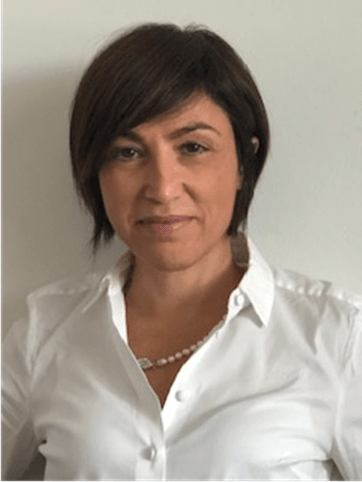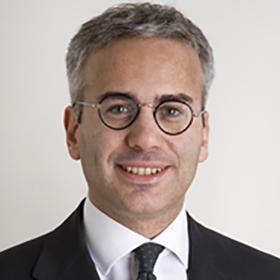
Navigating bank boards: Competences, skills, and tools
Home - Navigating bank boards: Competences, skills, and tools
Share this course
Dates
22/09/2023 - 23/09/2023
Location
Badia Fiesolana
Download the programme
Application deadline
04/09/2023
Delivery mode
Residential
Registrations are closed. To request inclusion in the waiting list, please contact fbf@eui.eu.
Navigating Bank Boards: Competences, Skills and Tools is the third edition of the training for bank board members organized in the framework of the BBA. This course will gather an international faculty of regulators, supervisors, and academics together with bank and finance professionals.
The two-day sessions will cover the following topics:
- Fit and Proper Assessments: why are they important, and how are such assessments being conducted by the Single Supervisory Mechanism?
- SREP overview: Results from the 2022 exercise and ongoing revision of the methodology.
- Digital Transformation and Cyber Risks: How to Deal with Them at the Board and why does it matter to banking supervisors?
- Liquidity and interest rate risks.
Module 1 – Fit and Proper Assessments: why are they important, and how are such assessments being conducted by the Single Supervisory Mechanism (Paul Disveld – ECB, and Lars Kiehlmann – ECB)
- Raising the bar for fit and proper assessments.
- Evaluation of the first 1.5 years of experience with the revised ECB Guide on fit and proper assessments.
- Roles and responsibilities of NEDs in the governance and functioning of the board; the importance of diverse boards.
Practical cases: Depicting the assessment of the five fit and proper criteria (focus on assessment of NEDs) ( Paul Disveld – ECB, and Lars Kiehlmann – ECB)
Module 2 – SREP overview: Results from the 2022 exercise and ongoing revision of the methodology (Federico Pierobon – ECB/SSM, and Floriana Grimaldi – ECB/SSM)
- SREP overview: the SSM methodology and the results of the 2022 exercise.
- The SSM approach for the supervision of governance and risk management, as part of the Supervisory Review Examination Process (SREP).
- Supervisory measures on governance.
- Challenges identified in past supervisory cycles.
Module 3 – The Life of Boards in Practice: Sharing of Experiences
- Cases of behavioural patterns that benefit or hinder board effectiveness.
- The relationship between external and internal supervision.
Module 4 – Digital Transformation and Cyber Risks: How to Deal with Them at the Board? Risk Management for Non-Subject Matter Specialists (James H. Freis, Jr – Market Integrity Solutions)
Cyber risks are an increasingly relevant part of a digitalized world. Banks rely on specialists within the organization and external advisors (e.g., those conducting penetration tests), while overall board composition increasingly includes members with IT backgrounds. This session will explore how board members who are not cybersecurity subject matter experts can approach their responsibilities in overseeing the management’s approach to cyber risks – both proactively towards risk mitigation and as part of a prudent approach to incident response and business continuity.
Module 5 – Digital Transformation: why does it matter to banking supervisors? (Katia Mastrodomenico – ECB, Marie Lafontaine – ECB, and Maria Julve San Martin – ECB)
The session offers an overview of the SSM supervisory approach to the digital transformation of European banks. The key goal is to let the audience understand why digital transformation is a strategic priority for the European supervisors, the key focus areas from a supervisory perspective, and how the SSM is approaching this subject and intends to proceed. The seminar’s core will explore aligning digital transformation opportunities with sound governance and managing the risks it poses to business model sustainability and banking operations. A lively exchange of views between speakers and participants is welcome to explore and bridge potential gaps of perspectives between the industry and the supervisors.
Module 6 – ALM and interest rate risk (Emiliano Carchen – Oliver Wyman, and Andrea Federico – Oliver Wyman)
The session aims to foster board members’ understanding of the impact of the changed interest rate environment and market conditions on the soundness of banks’ balance sheets and income statements. It will cover interest rate risk, liquidity risk, and loan and deposit management issues.
-

Paul Disveld
Head of Section, Fit and Proper Division
ECB Banking Supervision
-

Luca Giaccherini
Coordinator of the Joint Supervisory Team
European Central Bank
-

María Julve
Head of the Non-Financial Risk Experts Division
European Central Bank
-

Lars Kiehlmann
Principal Supervisor, Fit and Proper Division
ECB Banking Supervision
-

Katia Mastrodomenico
Head of Division - DG Horizontal Line Supervision
European Central Bank
-

Alessandro Ricci
Head of Section and JST Coordinator
European Central Bank
-

Elena Carletti
Part-time Professor - Florence School of Banking and Finance
Bocconi University | Unicredit Group
-

Emiliano Tornese
Part-time Professor - Florence School of Banking and Finance
European Commission
Friday – 22 September 2023
09:30 – 10:00: Welcome address
10:00 – 11:30: Fit and Proper Assessments: why are they important, and how are such assessments being conducted by the Single Supervisory Mechanism
- Raising the bar for fit and proper assessments
- Evaluation of the first 1.5 years of experience with the revised ECB Guide on fit and proper assessments
- Roles and responsibilities of NEDs in the governance and functioning of the board; the importance of diverse boards
Speakers: Paul Disveld (ECB) and Lars Kiehlmann (ECB).
11:30 – 12:00: Coffee break
12:00 – 13.30: Practical cases
- Depicting the assessment of the five fit and proper criteria (focus on assessment of NEDs)
Facilitators: Paul Disveld (ECB) and Lars Kiehlmann (ECB).
13:30 – 14:30: Networking Lunch
14:30 – 16:00: SREP overview: Results from the 2022 exercise and ongoing revision of the methodology
- SREP overview: the SSM methodology and the results of the 2022 exercise
- The SSM approach for the supervision of governance and risk management, as part of the Supervisory Review Examination Process (SREP)
- Supervisory measures on Governance
- Challenges identified in past supervisory cycles
Speakers: Federico Pierobon (ECB/SSM) and Floriana Grimaldi (ECB/SSM)
16:00 – 16:30: Coffee break
16:30 – 18:30: The life of boards in practice: sharing of experiences
- Cases of behavioural patterns that benefit or hinder board effectiveness
- The relationship between external and internal supervision
Facilitators: Alessandro Ricci (ECB), Luca Giaccherini (ECB).
18:30 – 21:00: Cocktail and networking dinner
Saturday, 23 September 2023
8:30 – 09:45: Digital Transformation and Cyber Risks: How to Deal with Them at the Board? Risk Management for Non-Subject Matter Specialists
Cyber risks are an increasingly relevant part of a digitalized world. Banks rely on specialists within the organization and external advisors (e.g., those conducting penetration tests), while overall board composition increasingly includes members with IT backgrounds. This session will explore how board members who are not cybersecurity subject matter experts can approach their responsibilities in overseeing the management’s approach to cyber risks – both proactively towards risk mitigation and as part of a prudent approach to incident response and business continuity.
Speakers: James H. Freis, Jr. (CRINDATA LLC and Market Integrity Solutions LLC).
09:45 – 10:00: Coffee break
10:00 – 11:30: Digital Transformation: why does it matter to banking supervisors?
The session offers an overview of the SSM supervisory approach to the digital transformation of European banks. The key goal is to let the audience understand why digital transformation is a strategic priority for the European supervisors, the key focus areas from a supervisory perspective, and how the SSM is approaching this subject and intends to proceed. The seminar’s core will explore aligning digital transformation opportunities with sound governance and managing the risks it poses to business model sustainability and banking operations. A lively exchange of views between speakers and participants is welcome to explore and bridge potential gaps of perspectives between the industry and the supervisors.
Speakers: Katia Mastrodomenico (ECB), Marie Lafontaine (ECB), Maria Julve San Martin (ECB).
11:30 – 12:00: Coffee break
12:00 – 14:00: ALM and interest rate risk
The session aims to foster board members’ understanding of the impact of the changed interest rate environment and market conditions on the soundness of banks’ balance sheets and income statements. It will cover interest rate risk, liquidity risk, and loan and deposit management issues.
Speakers: Emiliano Carchen (Oliver Wyman) and Andrea Federico (Oliver Wyman), Boris Dunnewijk (Unicredit).
14:00 – 15:00: Light lunch
Who should apply?
Participants profile:
- Banks’ Non-Executive Directors (current and prospective)
- Board secretaries and secretariat officers
- Members of board committees
- Regulatory and government affairs managers
- Board Advisory consultants
The BBA program puts a high priority on participant diversity, also in geographic terms. Our intention is for participants to interact and discuss with peers to get a valuable learning, sharing and networking experience thanks to an outstanding international faculty of regulators, supervisors, and academics together with bank and finance professionals.
How to apply?
You need to complete an online application form.
Upon creating an account at the Robert Schuman Centre Services Portal, your credentials (username and password) will allow you to fill in your application. The application includes biographical information, information related to your professional background, and contact information.
Eligibility and Requirements include:
- Attendees are expected to participate in the programme actively.
- Applicants should have some experience as regards bank business and strategic bank decisions.
- Attendees are expected to have a good knowledge of English at the B2 level.
Applying early increases your chance of being accepted, seats are limited to ensure interactivity and high-quality training.
Accommodation
Recommended hotels nearby the EUI:
Recommended hotels in downtown Florence:
Suggested restaurants in Florence city centre
- Restaurant Accademia – Ph. +39 055 217343
- Restaurant Cucina Torcicoda – Ph. +39 055 265 4329
- Finisterrae – Ph. +39 0552638675
- Il Vezzo – Ph. +39 055 281096
- Osteria di Giovanni – Ph. + 39 055 284897
Wi-Fi
On arrival, participants will be provided with temporary wi-fi access for the whole duration of the course.
For general queries: fbf@eui.eu
GENERAL INFORMATION ON LOCAL TRANSPORT
From Florence airport:
Florence airport is located 8 km from the city centre, approximately 30 minutes by taxi or bus. Taxis can be found outside the arrivals terminal; no reservation is needed. A taxi ride from the airport costs about €20 and takes approximately 25/30 minutes.
A tramway (line T2) connects the airport to the city centre. Trains leave from the airport terminal and take 20 minutes to the main railway station. One-way tickets can be bought from vending machines for €1.50.
From the central railway station:
Take bus n. 7 at the bus stop Stazione Nazionale in the direction “Fiesole Piazza Mino”, get off at the stop ‘San Domenico 01’. For bus routes and timetables consult the official timetable.
Bus tickets are sold outside the railway station, at Autolinee Toscane ticket kiosks and vending machines, tobacconists (tabacchi), newspaper kiosks (edicole), and most cafes (bar). They must be bought before boarding and stamped using the machine on the bus. A ticket costs €1.50 and it is valid for 90 minutes. Bus tickets can be purchased also on board (€ 2.50), but the driver is not obliged to give change.
Private car
From the A1 Milano-Napoli (Autostrada del Sole), take the Firenze Sud exit and follow directions to the city centre/Stadio. Follow the directions to the stadium (Stadio), then for Fiesole. San Domenico is on the main road to Fiesole.
The EUI has several free parking areas available all over the Campus.
2,350€ – New participants.
2,050€ – Participants of previous editions.
Please note that the payment must be settled two weeks before the start of the course.
The fee includes tuition, access to all course materials and pedagogic activities, coffee and lunch breaks and one networking dinner. It does not include travel and accommodation expenses or other local transportation costs (taxis, private cars).
For more details, please contact fbf@eui.eu






